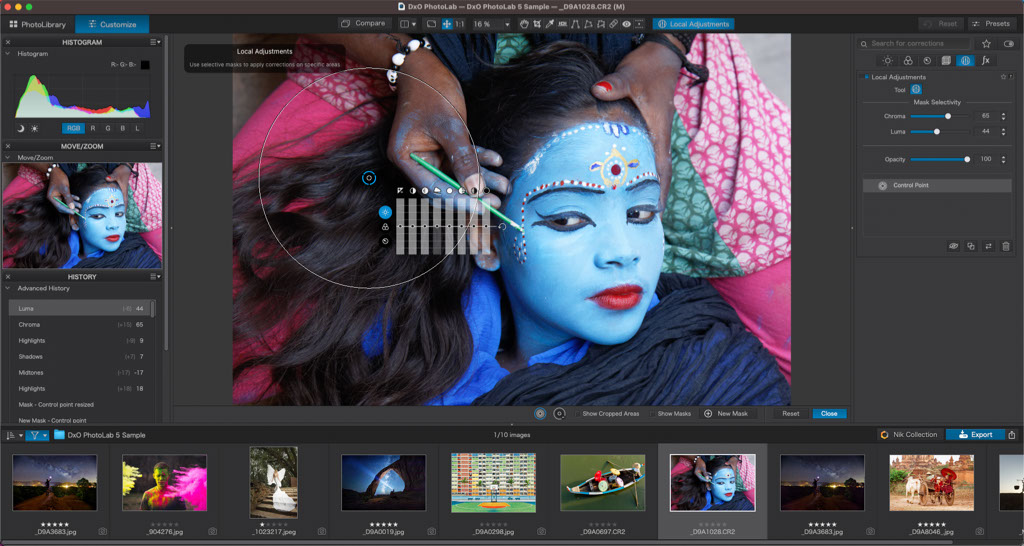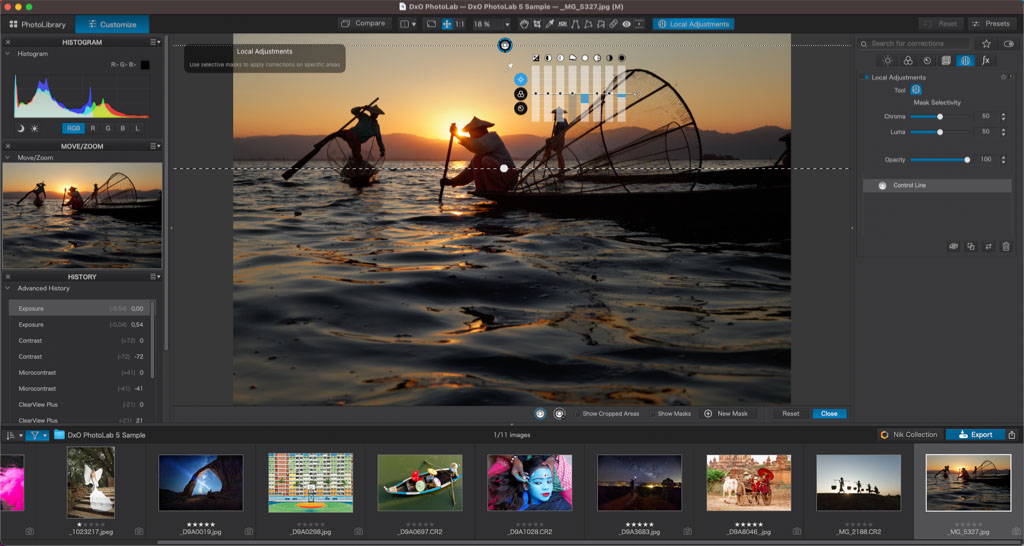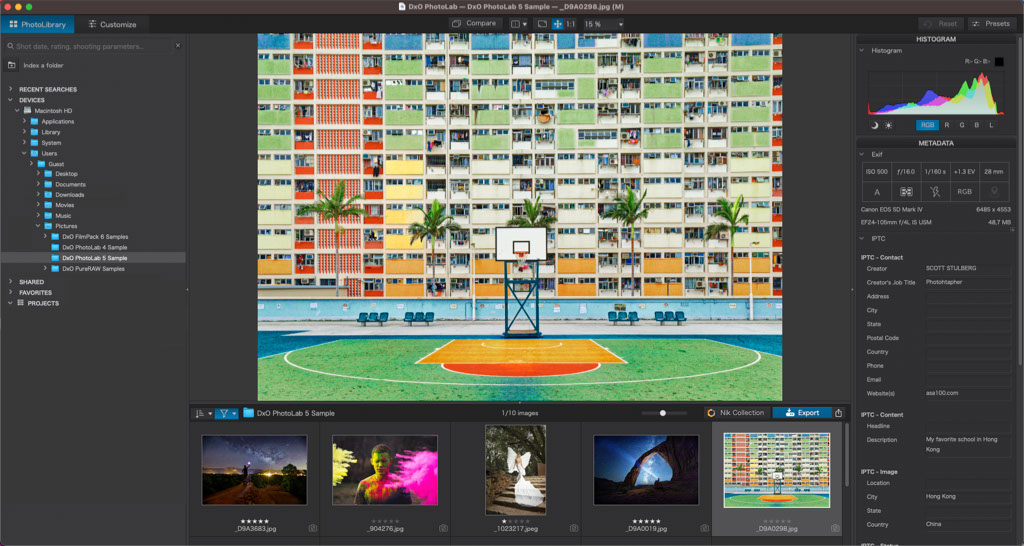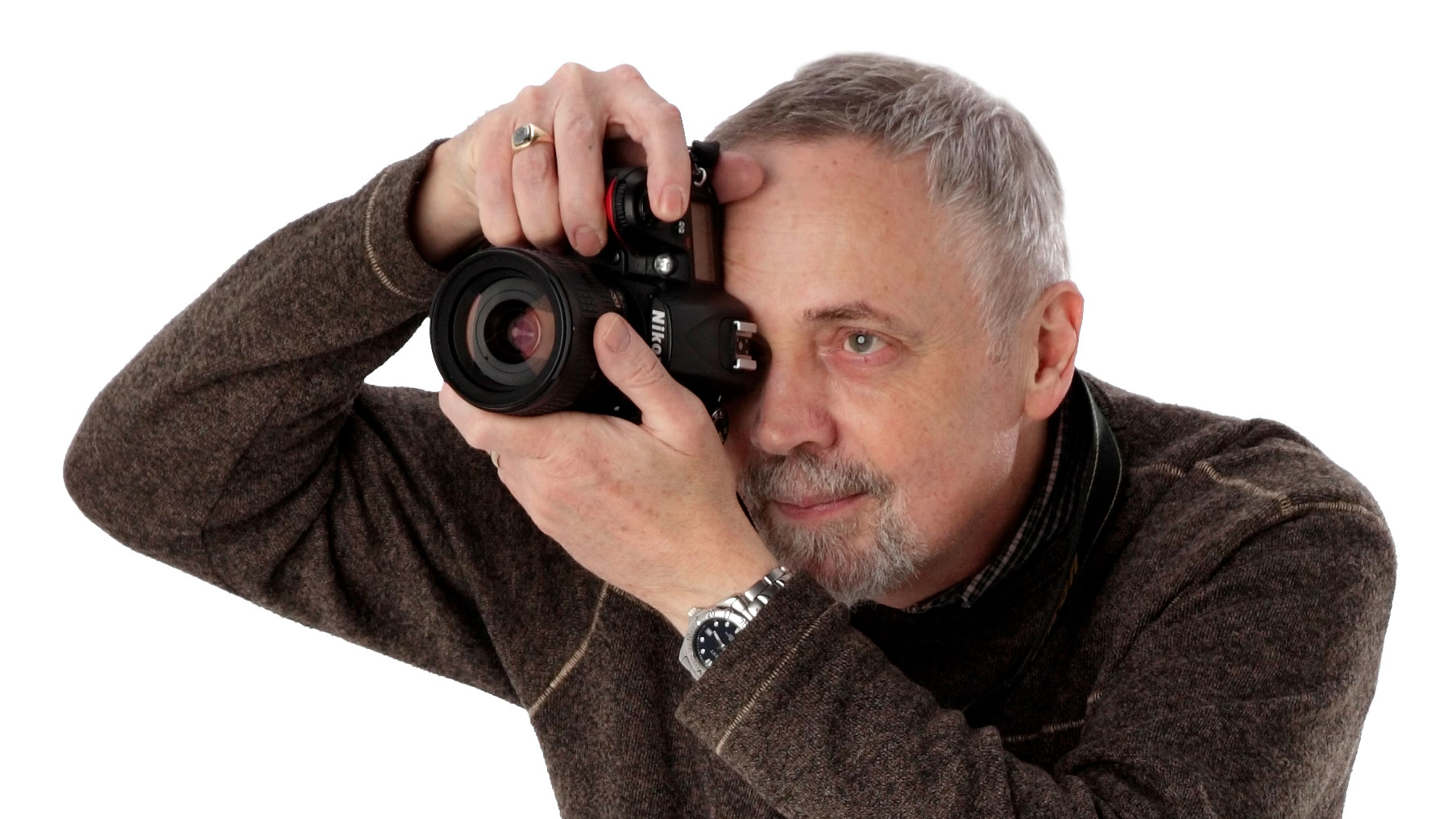DxO PhotoLab 5 is here… and now it supports Fujifilm X-Trans cameras!
DxO’s flagship raw processing, lens correction and editing software gets a series of key updates and additions

DxO has released PhotoLab 5, the latest version of its high-end raw processing and editing software, now with support for Fujifilm X-Trans cameras.
DxO’s raw processing and optical corrections are amongst the best on the market, and PhotoLab 5 Elite, the top version, includes the company’s ground-breaking AI-powered DeepPRIME noise reduction process, which combines noise reduction the the raw demosaicing process itself.
PhotoLab 5 is aimed at photographers who want the best possible image quality from their raw files, and has been developed using the company’s own optical testing laboratories to include automatic lens correction profiles that don’t just correct distortion, chromatic aberration and corner shading, but lens softness too.
PhotoLab also incorporates the U-point technology inherited from its takeover of the Nik Collection, so PhotoLab 5 adds sophisticated local adjustments to the mix.

DxO PhotoLab 5 new features
With PhotoLab 5, DxO says it has made its DeepPRIME denoising process up to 4x faster on a new M1 silicon Mac, and 1.5x faster on the “best” Windows architecture.
Local adjustments have been improved with the addition of a new Control Lines adjustment to allow more sophisticated and controllable local masking.
The big news, though, is ‘beta’ support for Fujifilm X-Trans sensors. DxO has previously said that its demosaicing technology worked solely with regular bayer sensors, and that re-engineering it was not practical. The company has clearly changed its mind, however, so now Fujifilm camera owners can also get the benefit of DxO’s raw processing engine.
Get the Digital Camera World Newsletter
The best camera deals, reviews, product advice, and unmissable photography news, direct to your inbox!
DxO describes this as ‘beta’ support, not to indicate that it might not work properly but to flag up that it’s still in development and that the company is keen for feedback from the Fujifilm community.
Other improvements in PhotoLab 5 include EXIF and IPTC metadata support in its PhotoLibrary module and an ‘interactive’ tree structure for creating, applying and managing keywords.
PhotoLab 5 also supports a series of new cameras, including the Canon EOS Ra, DJI Air 2S and Mini 2, Nikon Z fc, Olympus PEN E-P7, Panasonic GH5 II, Pentax K-3 III and Sony ZV-E10. X-Trans support has been added for a host of Fujifilm cameras, including the Fujifilm X-E2, Fujifilm X-E2S, Fujifilm X-E3, Fujifilm X-E4, Fujifilm X-H1, Fujifilm X-Pro2, Fujifilm X-Pro3, Fujifilm X-S10, Fujifilm X-T1, Fujifilm X-T2, Fujifilm X-T20, Fujifilm X-T3, Fujifilm X-T30, Fujifilm X-T4, Fujifilm X100F, Fujifilm X100T, Fujifilm X100V and Fujifilm X70.

DxO PhotoLab 5 price and availability
DxO PhotoLab 5 is available now in two editions. PhotoLab 5 Essential is the cheaper, at $139/£129, or $109.99/£99.99 with discount. You can upgrade from PhotoLab 3 or 4 essential for $74/£65, or $54.99/£47.99 with discount.
If you want PhotoLab’s more advanced features, however, including DeepPRIME noise reduction and ClearView contrast enhancement, you will need the PhotoLab 5 Elite edition, which costs $219/£199, or $164.99/$149.99 with discount. Upgrade pricing from PhotoLab 3 or 4 Elite is $99/£89, or $79.99/£69.99 with discount.
Both editions are available as a fully featured 30-day trial, as is the DxO Nik Collection 4 and DxO’s PureRAW automated raw processing and correction tool.

Rod is an independent photography journalist and editor, and a long-standing Digital Camera World contributor, having previously worked as DCW's Group Reviews editor. Before that he has been technique editor on N-Photo, Head of Testing for the photography division and Camera Channel editor on TechRadar, as well as contributing to many other publications. He has been writing about photography technique, photo editing and digital cameras since they first appeared, and before that began his career writing about film photography. He has used and reviewed practically every interchangeable lens camera launched in the past 20 years, from entry-level DSLRs to medium format cameras, together with lenses, tripods, gimbals, light meters, camera bags and more. Rod has his own camera gear blog at fotovolo.com but also writes about photo-editing applications and techniques at lifeafterphotoshop.com
